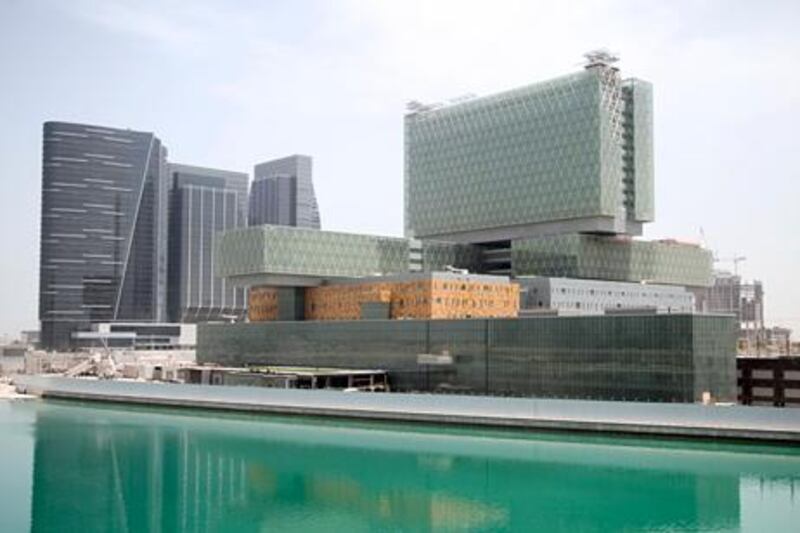The new financial free zone for Abu Dhabi will have a new regulator and its own court system aligned "with global financial market laws".
A statement from the Executive Council yesterday detailed several bodies that will underpin the legal framework of the Abu Dhabi financial free zone on Al Maryah Island.
It establishes the Global Marketplace Abu Dhabi as tax-free for 50 years with full foreign ownership of companies.
"The Marketplace is created to make the economic environment more attractive to financial investments," the statement said. "It has an integrated legal framework that is aligned with global financial market laws, in addition to courts that handle litigation."
The UAE approved a law creating a free zone on Al Maryah Island in February, although the announcement was not made public until last month.
The free zone is Abu Dhabi's fifth and comes amid a renewed push by the Abu Dhabi Government to accelerate its oil diversification drive.
The federal decree gives the Abu Dhabi free zone a registrar of companies, a new regulator called the Financial Services Regulations Bureau, and its own court system.
The courts will have a chief justice, as well as a court of first instance and a court of appeal. The statement did not mention whether English common law, preferred by international firms, would be used.
The zone is intended to serve as a hub for activities including banking, trading and storage of commodities and metals, market making, Islamic finance, insurance and asset management. The proposed centre "eliminates the time gap to the global financial markets" by providing a trading venue that is available during the closing of Asian markets and the European open, the statement said.
The new regulator joins a financial landscape that includes the Central Bank and the Securities and Commodities Authority, which regulate "onshore" market activity, as well as the Dubai Financial Services Authority, which oversees the Dubai International Financial Centre.
The creation of a regulator in Abu Dhabi was likely to help encourage more financial firms to move into Al Maryah's Sowwah Square, said Tim Plews, head of the Middle East financial services and markets practice at Clifford Chance, the law firm.
"I'd expect people to turn up and more firms to move in," he said.
"The scale may be small to begin with at the start, but if Abu Dhabi Inc. firms start to route their business through intermediaries in the financial free zone that will become apparent, and you would expect that would lead more financial services organisations to move into the free zone in due course."
By creating a mirror image of the DIFC's regulatory bodies, Global Marketplace Abu Dhabi potentially becomes a "direct competitor" to Dubai's financial hub, said Kai Schneider, a partner at the law firm Latham & Watkins.
The large number of highly liquid investors based in Abu Dhabi, notably the Abu Dhabi Investment Authority, could even give the capital a competitive advantage over its neighbour, he added. Gulf states have established a number of banking hubs in an effort to develop their financial industries during the past decade, with the DIFC in 2004 and the Qatar Financial Centre following a year later.
Dubai is the regional headquarters of many of the world's largest financial firms such as Industrial and Commercial Bank of China and HSBC. However, investment banks including Credit Suisse and Morgan Stanley have relocated some staff to Doha and Riyadh in the past year.
The prolonged economic slump in Europe has convinced some investment banks to relocate staff from Dubai to London, although recently the recovery in the American economy has enabled some US banks such as JPMorgan and Citibank to increase their presences in the Middle East.





